![Ecuador - Mario Hervas [24/25]](http://scenery.coffee/cdn/shop/files/ecuador_mario_hervas_shopify_eaa8f501-e9c7-428e-b46c-e0725bd58ac0.png?v=1744818817&width=1445)
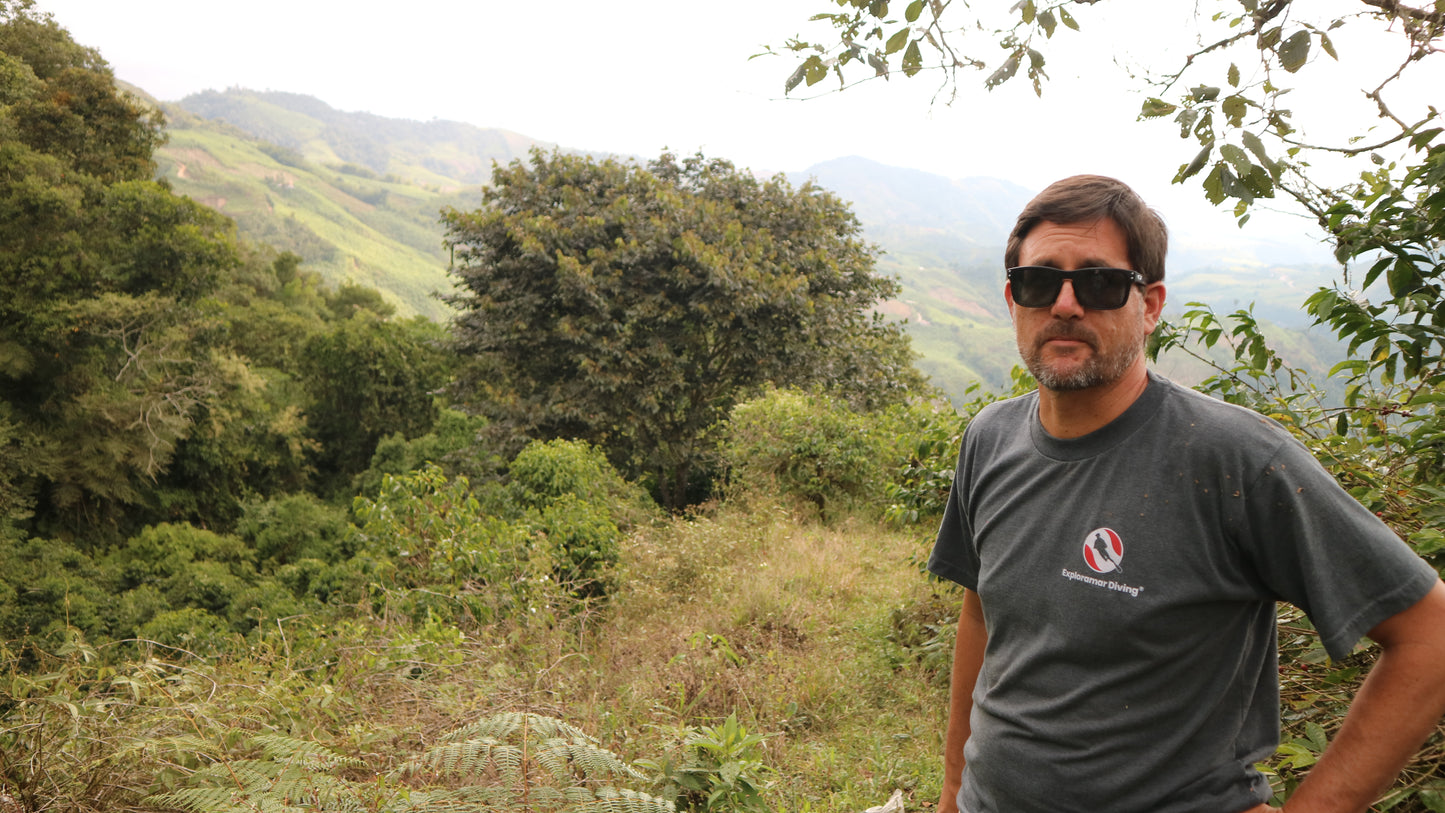
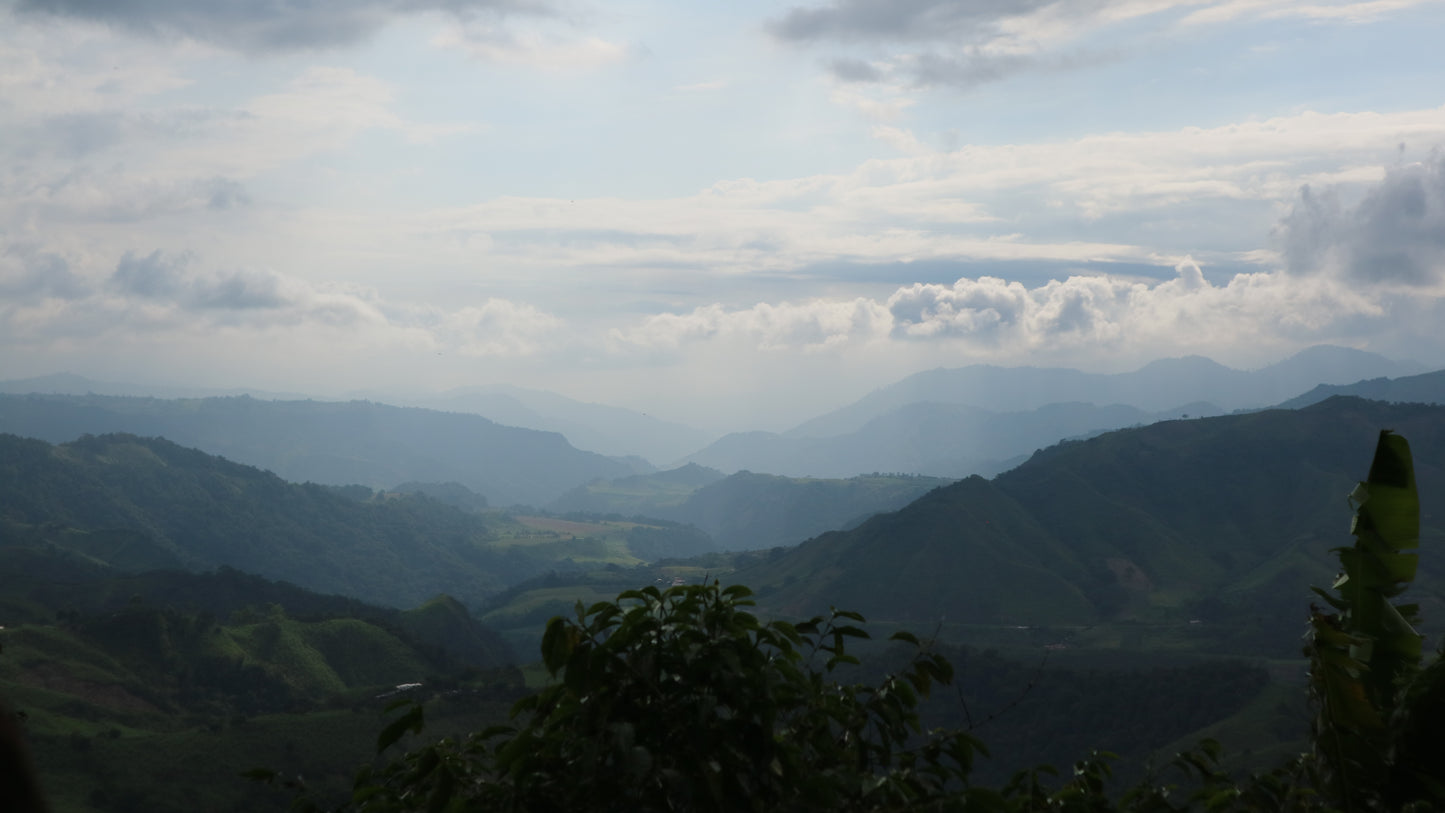
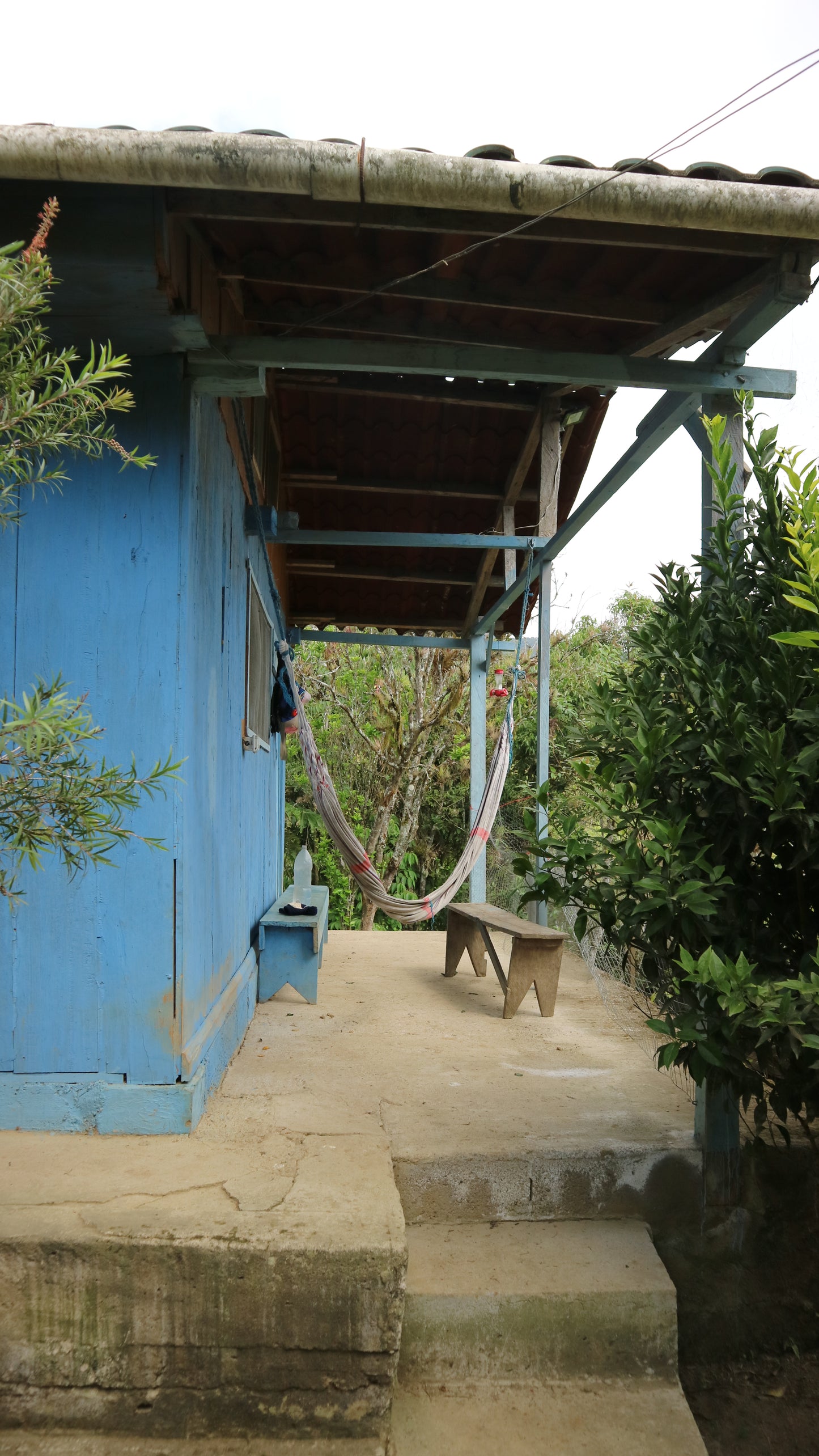
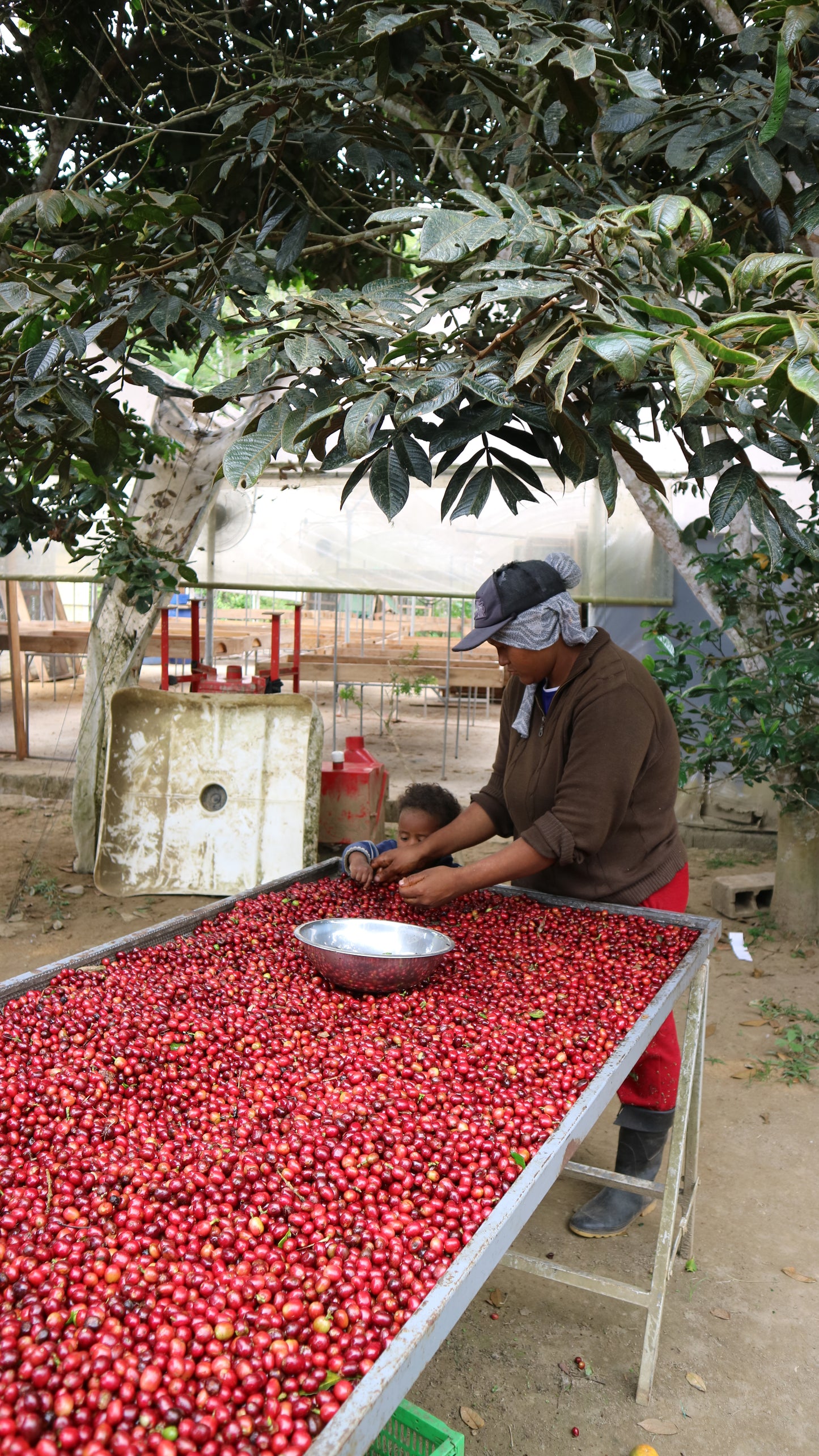
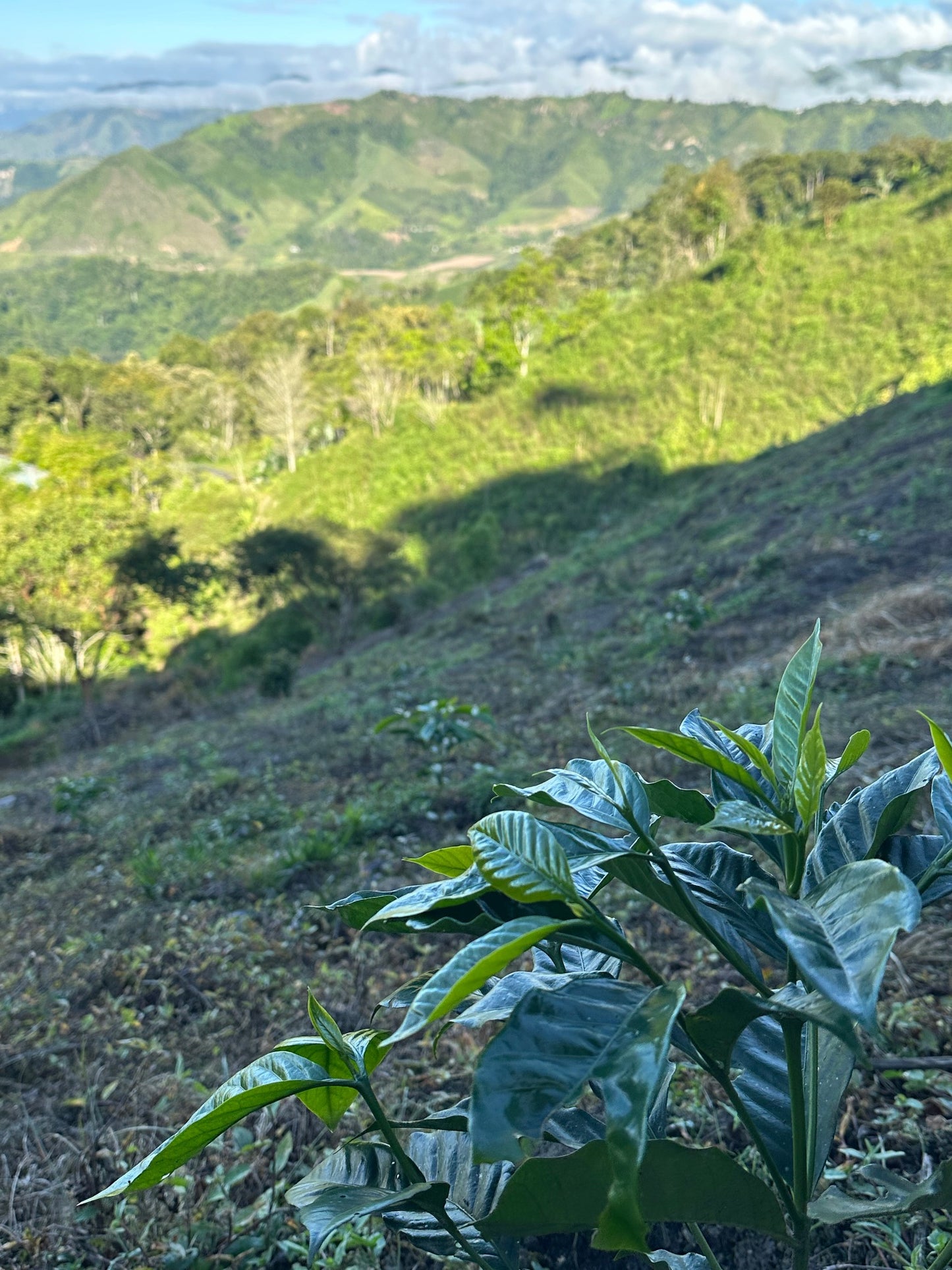
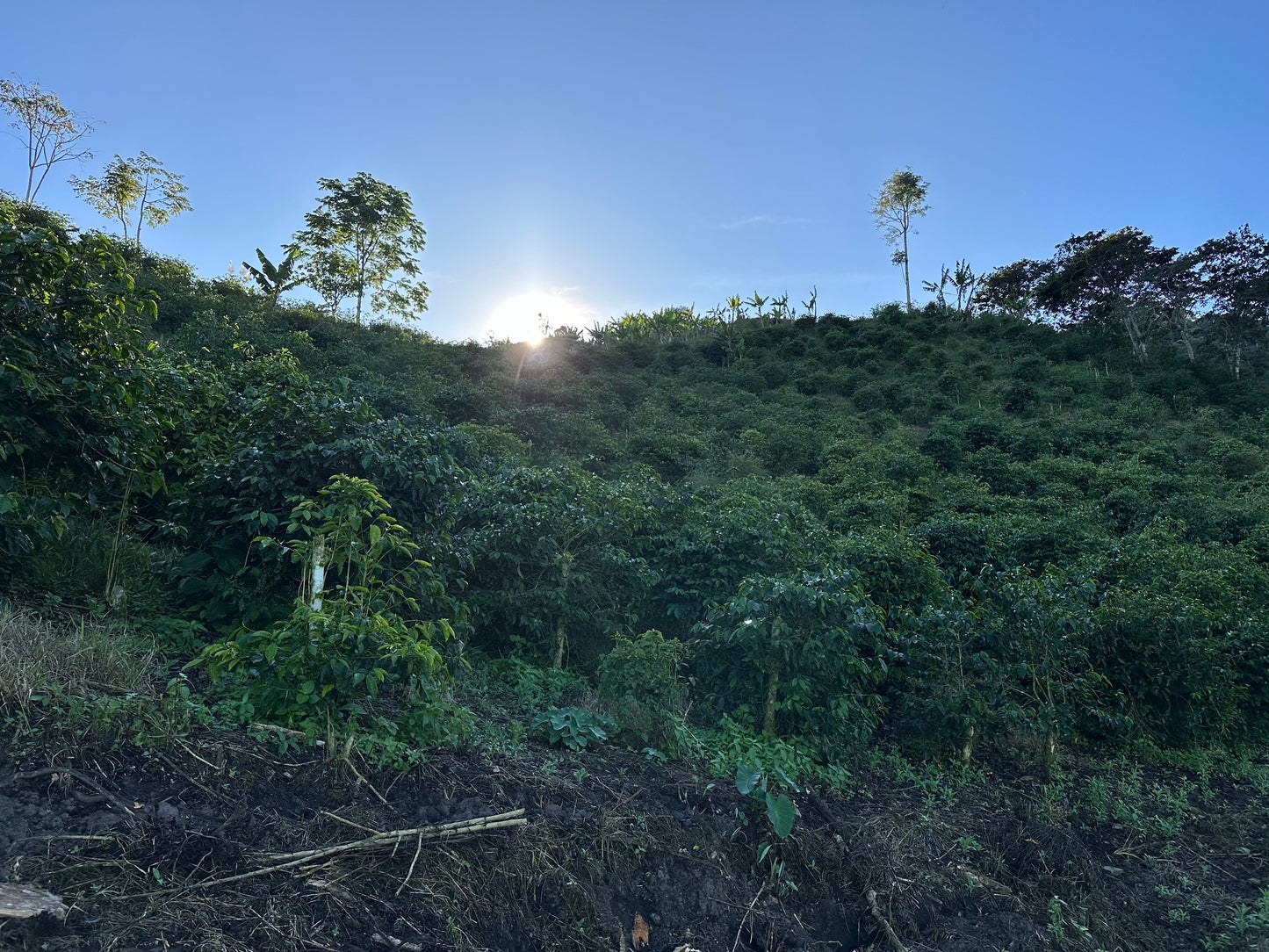
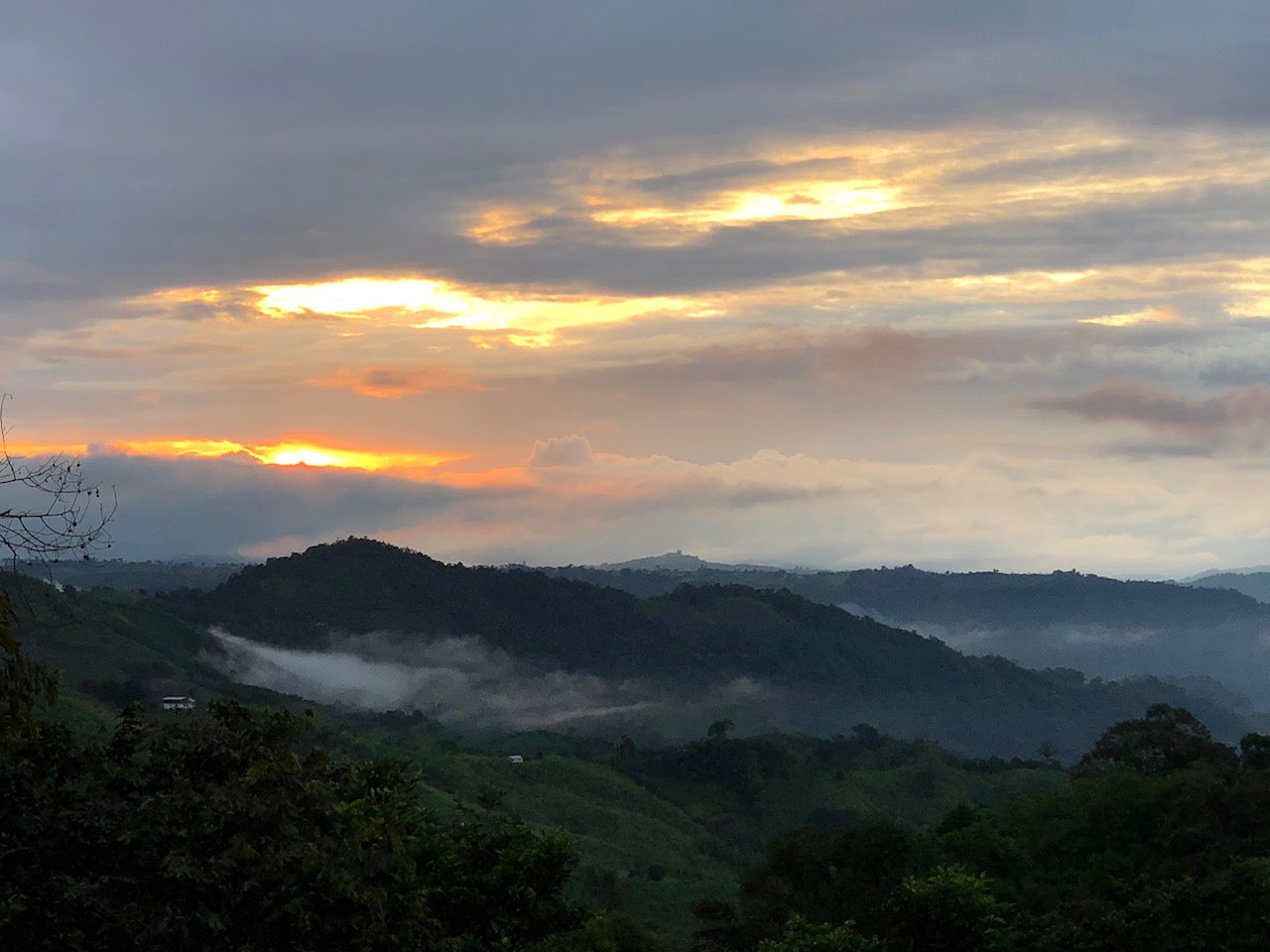
Brew Guide:
Best Brewed with: Filter
Lightest Roaster Influence: A fraction more developed than last year; we find Mario's coffee can still take a very light roast with heaps of acidity presentation and structure.
Best Rested: 3-4 weeks
Filter: 60g/L & 98°C, with rest we like to move down to 58g/L & 93°C
Espresso: Turbo shots + 3 weeks rest. 18g/45g+ & 20s
We’re tasting: Soft and sweet aromatics - butterscotch, apple, & blackcurrant leaf; in the cup it's full of gentle orange blossom florals, fuji apple, darjeeling tea & panela (that classic intense sugary Mejorado sweetness). As it cools, the citrus acidity becomes more defined alongside the sweetness, becoming like lemon curd.
Traceability
Country of Origin: |
Ecuador |
Region: |
Nanegal, Pichincha |
Producer: |
Mario Jose Hervas |
Farm: |
Finca El Meridiano |
Variety: |
Mejorado |
Elevation: |
1350-1500 MASL |
Process: |
Washed: Hand picked, floated and re-sorted at the collection point, held in cherry in water for 40-44 hours before pulping. Parchment dry fermented for 18 to 20 hours before washing with fresh water. Dried on raised beds inside parabolic driers |
Import Partner: |
Makicuna |
Harvest |
Crop 24/25, Arrived UK April 2025 Second harvest purchasing coffee from Mario |
The Story
Our second year purchasing coffee from Mario with Scenery, but our 7th year working together in total - it's safe to say we're fans of the output from El Meridiano. We caught up with Mario prior to the release of this years lot - finding that the weather was a little trickier this year with long periods of continual rain over nearly 6 months, followed by continuous sun for the next 6. While this may have been less than ideal for the plants, Mario has tweaked his processing - holding the coffee in cherry for an additional 20-24 hrs. By keeping the fruit intact, the theory implies a marginal increase in those "in-cherry" fermentation flavours - red fruits and heavier body.
But Mario makes sure that the cherry is submerged, in cool water - as opposed to a hot, dry ferment that could rapidly bring in off-character. In all cases with Mario's processing, the goal is to produce something ultra-clean and cultivar lead and this is no exception.
We're hearing there's steady progress in the Gesha and Rosado project - selections continue each year; and we're hopeful to secure the first few kilos as soon as they become available.
El Meridano:
Thanks to his previous career as a rose farmer and agronomist, Mario has turned his experience towards obsessive improvement of Finca El Meridiano since starting the farm in 2011.
The 25 HA Finca El Meridiano sits in the stunningly biodiverse and thriving cloud forests of Nanegal, in the foothills of the Andean mountains. The climatic conditions around Pichincha means farms receive high rainfall and a relatively high humidity, which can make for a tough environment for certain varieties and cultivars of coffees more adapted to drier climes.
Mario tells us the first six to seven years of running the farm were tough and that he made many mistakes in the process of learning about the art of growing, processing and selling coffee, but he stuck at it - and while each year brings new challenges and learning, it’s started to pay off - like taking 10th place in the inaugural Ecuador Cup of Excellence, for a start.
One of the things Mario credits for his success is his nursery and breeding program. The “Mejorado” cultivar has its history in a Nestle variety garden, and is a cross between Bourbon and an Ethiopian landrace (likely for the purposes of hybrid vigour, improved yield and quality). This variety is gaining a strong reputation for quality - deep sweetness, florality and complexity when grown well.
Mario has germinated, selected and bred every single tree on the farm. By selecting only those Mejorado trees that performed well in Meridiano, the 10 HA that are planted with coffee are strong, healthy, high yielding and of impeccable quality. The coffee from Meridiano is incredibly consistent - and considering the impacts of climate change and general natural variability, it’s no mean feat.
Scoffing at the thought of natural processing, anoxics, co-ferments and the like, Mario has been tweaking his washed process (and more recently white/yellow honey process) to bring out the cleanest expression of the land and cultivar. One aspect he credits for the quality of the fermentation is the quality of the private springs that provide the farm water.
Mario’s coffee comes with a price - that we think is more than fair to pay. Ecuador is a dollarized economy, which broadly means their internal goods and services (including labour) are more expensive when compared to neighbouring countries. One of the biggest challenges in running a speciality farm in Ecuador is the labour to pick the cherries. Seasonal itinerant labour is reduced in Ecuador, as many who would undertake it have migrated north in search of economic empowerment. While Mario pays more for quality, it can be hard to retain pickers - to the point it is almost better to pay someone who picks poorly (and re-sort the cherries at the collection point), than to force the issue and have them not turn up the next day.
There are never enough pickers to get all the cherries on the farm - so Mario’s focus to ensure his farm is profitable is on adding value through quality, rather than bulk quantity.
Having worked on the Mejorado project for some time, Mario is turning his attention to Rosado and Gesha - although he says there is some work to be done yet to select for the genetic expression he is looking for. We’re very excited to see what he cooks up - we’ll try and be first in line for the early harvests, that’s for sure.
- Choosing a selection results in a full page refresh.
- Opens in a new window.








